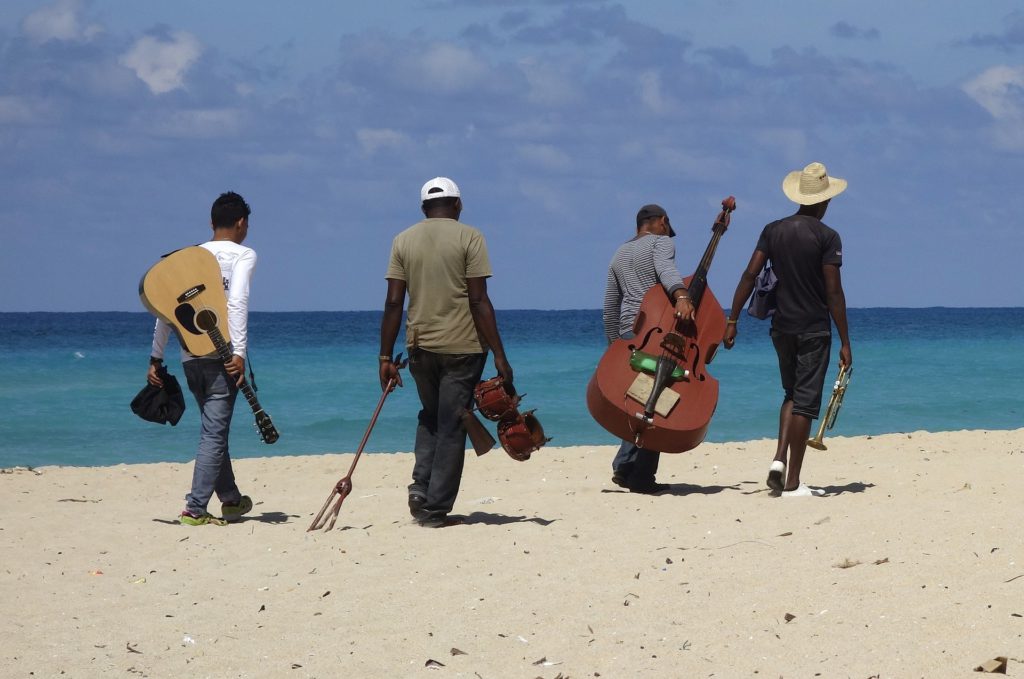
Date: Thursday 16 May 2019
Time: 1.15pm-6.30pm
Venue: Pavilion Room, St Antony’s College, Oxford
To listen to podcasts of the presentations, click on links below:
| The earth compels: Forces of destruction and creation in the history of African popular culture | Karin Barber | ‘Cultural Production in Africa’s Extractive Communities’ workshop, 16 May 2019, Oxford |
| The Elders know Nothing: the Inversion of Tradition in the New Mining Context | Ramon Sarró, Marina P. Temudo | ‘Cultural Production in Africa’s Extractive Communities’ workshop, 16 May 2019, Oxford |
| Youth, insecurity and intimacy in the popular arts of the Niger Delta | David Pratten | ‘Cultural Production in Africa’s Extractive Communities’ workshop, 16 May 2019, Oxford |
| Artistic Movements: Music, Popular Painting and Cultural Exchanges on the central African Copperbelt | Enid Guene | ‘Cultural Production in Africa’s Extractive Communities’ workshop, 16 May 2019, Oxford |
| Mobutist Modernism: Art Education, State Sponsorship and the Visual Arts in Zaire | Sarah Van Beurden | ‘Cultural Production in Africa’s Extractive Communities’ workshop, 16 May 2019, Oxford |
‘Cultural Production in Africa’s Extractive Communities’ is the sixth research seminar of the ERC project ‘Comparing the Copperbelt’ based at the University of Oxford. It focuses on the intersection between mining and cultural production in Central, Western and Southern Africa. Mining was one of the most important engines of transformation in Africa’s recent social and economic history. Industrial-scale mining – of gold, copper, tin, coal, oil, and diamonds – generated new towns and hurled people together from myriad cultural, linguistic and regional backgrounds. Thus, mining regions have also proved to be important venues of new forms of cultural production. Examples include DRCongo’s popular painting, Zambia’s psychedelic rock revolution in the 1970s, or Sotho migrant workers’ lifela song-poem genre. While certain forms of popular art have been the object of detailed study, e.g. in J.C. Mitchell’s 1956 ethnography of the Kalela dance, many of these studies have tended to be narrow in geographical focus.
This seminar will attempt a more global view and will look at a variety of cultural forms across a variety of regions and time periods. It will integrate analysis of cultural production into regional histories that have more commonly been characterised in structural and material terms, exploring the ways in which processes of cultural, political and economic change found expression in everyday life. Questions to be addressed include: in what ways did new forms of popular art integrate various cultural influences to address social issues specific to the mining context? How does the 21st century mining context, defined by plurality and competing global companies, impact cultural production? How do cultural forms produced in such contexts relate to and compare with those produced in other areas of the country? What can popular art tell us about the lived experiences of the societies that produced it?
Poster Cultural Production in Africa’s Extractive Communities 16 May final
Programme Cultural Production in Africa’s Extractive Communities 16 May final
SPEAKERS:
Sarah Van Beurden (Ohio State University; Ghent), ‘Mobutist Modernism: Art Education, State Sponsorship and the Visual Arts in Zaire’
Enid Guene (Oxford), ‘Artistic Movements: Music, Popular Painting and Cultural Exchanges on the central African Copperbelt’
David Pratten (Oxford), ‘Youth, insecurity and intimacy in the popular arts of the Niger Delta’
Ramon Sarró (Oxford) & Marina P. Temudo (Lisbon), ‘The Elders know Nothing: the Inversion of Tradition in the New Mining Context’
Discussants: Tim Livsey (Oxford) | Stephanie Postar (Oxford)
Keynote Speaker (5pm):
Karin Barber (Birmingham), ‘The earth compels: forces of destruction and creation in the history of African popular culture’
Held in association with the African Studies Seminar
